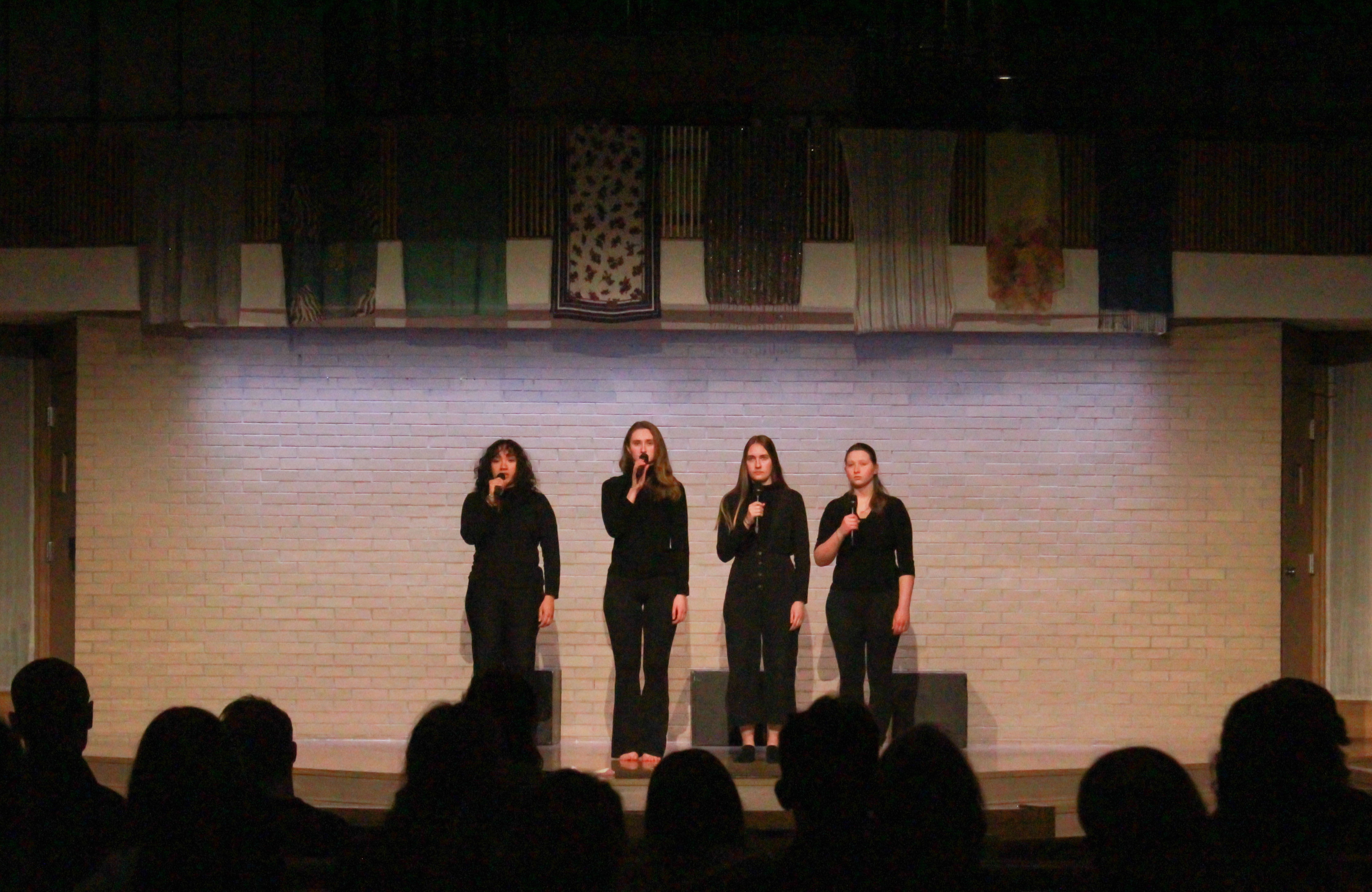A group of students identifying with the feminine experience performed at the 10th annual Goshen Monologues last Saturday, sharing powerful stories about relationships, privilege, campus dynamics and identity.
Goshen Monologues began in 2014 and was initially inspired by The Vagina Monologues, a 1996 episodic play by Eve Ensler that explores sexuality, body image and femininity. The student-led tradition has continued every year since then.Ceramic mugs were made by students Brandon Jimenez and Simon Hertzler Gascho and given to the Monologues cast to recognize the significance of the 10th anniversary.
The performance occurred in the Church-Chapel, where the mood was created through simple scarf decorations, black clothing and dim lighting.
This year, 21 anonymously written stories were performed, collected from those on campus who identified with the feminine experience.
Most were written by students, although at least one, titled “Teaching at GC while female,” was written by a faculty member.
The monologues covered a wide range of topics and emotions. Some were funny musings on social media and campus life, while others reflected on deeper issues such as body image, politics, trauma and sexual assault.
Monologues committee member Greta Lapp Klassen indicated that she was satisfied with the direction of this year’s selection of pieces.
“We didn’t have any that were controversial opinion monologues, which is nice,” she said. “Instead of being a place for people to express their opinions, it’s more of a story space.”
Also on this year’s committee were Olivia Krall, Mariela Esparza and Maddie Bollinger.
Along with collecting and preparing the stories for performance, the committee organized practices and directed the cast of 20 individuals.
Junior Ana Neufeld Weaver spoke highly of her first experience performing in Monologues this year.
“We try to build a strong community, so we do little meditations and activities to get to know each other, which is nice,” she said. “I think it’s really important to have people tell their stories.”
First-year Eliza Alemán also enjoyed being part of Monologues.
“It was an empowering experience for me and really got me out of my comfort zone,” she said. “I felt like I gained new relationships.”
“I would like to see a more diverse cast,” she added. “There are a lot of shared stories that come from BIPOC (Black, Indigenous, People of Color) individuals that deserve the same recognition here on campus.”
Lapp Klassen also explained that Monologues has become more established and recognized since its student-led beginning. “The college giving us convo credit has been a good way to show support,” she said.
Although the original Goshen Monologues was open to female voices only, it eventually evolved to include female and nonbinary voices. Today, it uses the language that anyone identifying with the feminine experience is welcome to participate.
“It’s been interesting within the past ten years to think about how language has changed and whether it’s still important to have a space for feminine experiences even though that can be an exclusive definition,” Lapp Klassen said.
She explained that they also realize “women’s issues and gender issues are just as strong as ever” even though female-oriented groups such as Goshen Women’s Student Association no longer exist.
“There aren’t other groups on campus that are specifically advocating for women’s issues,” she added.
Lapp Klassen will graduate in the spring, but hopes that first-year students will continue the tradition further.
“I hope that more people will know what Monologues is on campus and that we will always continue to have stories that are submitted,” she said.


